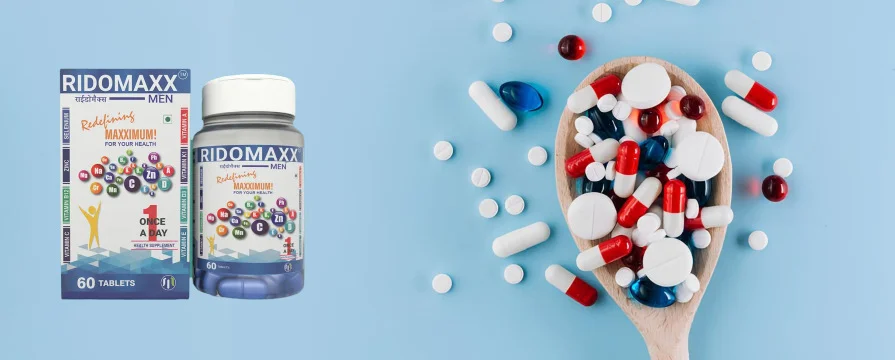Combining a balanced diet, frequent exercise, and specific nutritional supplementation as necessary is the key to maintaining maximum muscle health. The function, growth, and recovery of muscles are greatly affected by the 10 necessary multivitamins for muscles. While calcium is necessary for muscle contraction, vitamin D helps the body absorb calcium, which is important for the health of skeletal muscles. B vitamins help with energy metabolism, and magnesium improves both energy production and muscular relaxation. As the basic unit of muscle nutrition, protein promotes growth and repair.
In addition, for general muscular health, minerals like iron and zinc as well as vitamins like C are necessary. Potassium improves nerve cells and muscle function, while omega-3 fatty acids have anti-inflammatory abilities. Understanding the importance of these multivitamins allows people to make well-informed decisions for complete muscle maintenance.
Including a multivitamin throughout every day’s routine could prove to be an excellent choice for anyone seeking maximum health. A multivitamin is an easy-to-take, complete supplement that offers a range of important vitamins and minerals that can be difficult to get from diet simply. This combination, which offers an integrated approach to nutritional assistance, usually consists of vitamins, minerals, and occasionally additional advantageous substances. A well-balanced and nutrient-rich foundation for a healthy lifestyle can be maintained with the ease of a multivitamin, whether it is used to address specific deficiencies, boost the immune system, or improve your general health.
Here are the 10 most important multivitamins for muscles:
1. Vitamin D:
- Function: essential for supporting immune system function, developing bone health, and absorbing calcium.
- Sources: Vitamin sunshine, fish oil, and dairy products loaded with nutrients.
2.Calcium:
- Function: Essential for communication between nerves, muscle contraction, and the health of bones and teeth.
- Sources: foods packed with nutrients, nuts, leafy greens, and dairy products.
3. Magnesium:
- Function: Improves bone health, energy production, and muscle and nerve function.
- Sources: Leafy greens, whole grains, nuts, and seeds.
4. Protein:
- Function: Essential for the maintenance of all bodily tissues, including muscular growth and repair.
- Sources: Dairy products, meat, poultry, fish
5. B-vitamins (B6, B12, Folate):
- Function: Support the formation of red blood cells, energy metabolism, and brain functioning.
- Sources: Dairy products, meat, poultry, fish, leafy greens, and foods loaded with nutrients.
6. Vitamin C:
- Function: Necessary for the formation of collagen, a protein which maintains blood vessels, connective tissues, and skin.
- Sources: Citrus fruits, strawberries, bell peppers, and leafy greens.
7. Iron:
- Function: Helps to produce energy, reduces tiredness, and is essential for the blood’s oxygen transfer.
- Sources: Red meat, chicken, fish, beans, lentils, and cereals with vitamins
8. Zinc:
- Function: Promotes the production of proteins, wound healing, and immune function.
- Sources: Whole grains, dairy, nuts, seeds, and meat.
9. Fatty Acids Omega-3:
- Function: Anti-inflammatory in nature qualities, necessary for brain function, and heart health supporter.
- Sources: Walnuts, chia seeds, flaxseeds, and fatty fish (mackerel, salmon).
10. Potassium:
- Function: Function: Important for nerve transmission, contractions of muscles, and fluid balance maintenance.
- Sources: Leafy greens, potatoes, oranges, bananas, and tomatoes.
Conclusion:
The complex relationship between good muscular function and nutrition can be seen by the 10 essential multivitamins for muscle health. These nutrients are essential for maintaining muscle strength, growth, and recovery. They include the energy-regulating qualities of B-vitamins, the anti-inflammatory effects of omega-3 fatty acids, and the essential function that vitamin D plays in calcium absorption.
A well-balanced diet is still the best way to obtain these essential components, even though supplements can be helpful in treating certain deficits. Since dietary requirements might differ from person to person, consulting with a healthcare provider is advisable for perfectly appropriate guidance. Persons can support a complete method for muscle care, improving their overall health and performance, by making these multivitamins their top concern.




